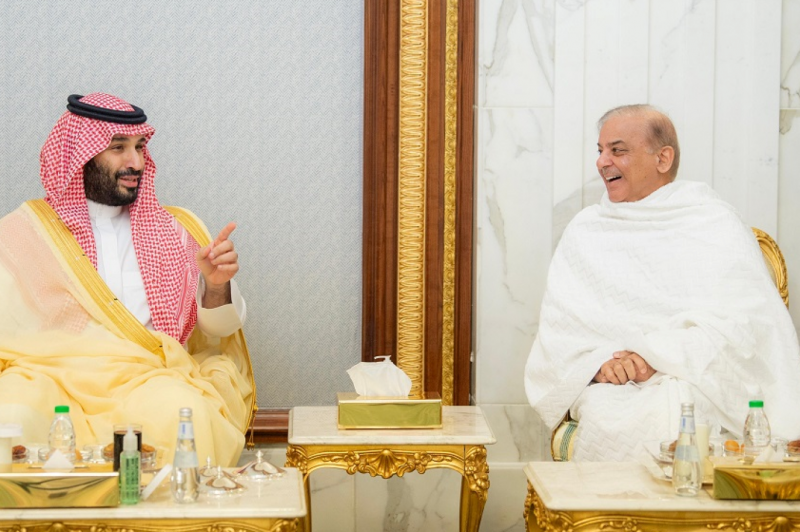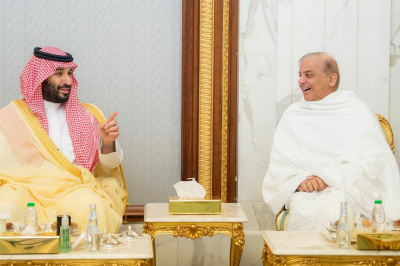Saudi Crown Prince Mohammed bin Salman affirmed that dialogue is crucial for resolving the ongoing disputes between neighboring countries Pakistan and India during his meeting with Pakistani Prime Minister Shahbaz Sharif in Riyadh. Sharif is on his first foreign visit since taking office again following the elections held in February. He met with bin Salman on Sunday.
A joint statement issued by the Pakistani Foreign Ministry and the Saudi government stated, "Both sides emphasized the importance of dialogue between Pakistan and India to resolve outstanding issues between the two countries, particularly the Jammu and Kashmir dispute, to ensure peace and stability in the region."
India and Pakistan both claim sovereignty over the entire disputed Kashmir region, although each has governed parts of it since gaining independence from Britain in 1947. The two neighbors have fought two out of their three wars over it.
Relations between India and Pakistan, which have always been fragile, deteriorated further after a suicide bombing in 2019 targeting an Indian military convoy in Kashmir was linked to militants based in Pakistan, prompting New Delhi to carry out airstrikes on what it claimed was a militant base in Pakistan.
Indian Defense Minister Rajnath Singh stated on Friday that India would enter Pakistan to kill anyone crossing the border after attempting to carry out armed activities in the country. The minister's remarks followed a report by The Guardian that indicated the Indian government had killed nearly 20 individuals in Pakistan since 2020 as part of a broader plan to eliminate militants on foreign soil.
India has long maintained friendly relations with Arab countries, including Saudi Arabia, which were strengthened during the tenure of Indian Prime Minister Narendra Modi, who is widely expected to secure a third term in the elections beginning on April 19.
Sharif and bin Salman also discussed accelerating a planned $5 billion investment package that Pakistan desperately needs to reduce its current account deficit and to demonstrate to the International Monetary Fund that it can continue to meet foreign financing requirements, which has been a primary demand in previous rescue packages.




